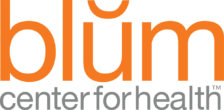There is much concern in these past few days about radiation drifting to the United States from Japan, and what we can do to protect ourselves should this happen. I am writing to share my thoughts on this. First, I want to say that we at Blum Center for Health send our prayers and healing thoughts to the Japanese people at this time of great catastrophe, and that we hope and pray the situation is contained.
I would like to talk about iodine. One of the radioactive particles that can be released from nuclear power plants is a radioactive form of iodine that if taken into our body, can go to the thyroid gland and cause thyroid injury and, in some people, cancer at a later date. If you take high doses of iodine, you can saturate your thyroid with iodine and then it won’t take up the radioactive form of iodine if you are exposed. The bad iodine will compete with the good, and it’s possible that this will prevent damage.
In general, iodine is pretty safe because most people are low to begin with, so for some, there is probably no harm in taking the tablets. However, iodine is not good at high doses if you already are hyper- or hypothyroid, especially if you have Hashimoto’s thyroiditis, an autoimmune type of hypothyroidism. In these cases, and also in some normal thyroid people, the high dose iodine can actually cause your thyroid to become worse. I have seen this happen. For this reason, I think it is important to have the decision be individualized based on your personal health history.
Right now it seems very unlikely that any significant radiation will make its way from Japan to the East Coast. This is the rational answer. While we watch and wait, we should consider other more simple alternatives to iodine tablets.
WHAT YOU CAN DO NOW: Increase your iodine intake from food
The following is a list of sea vegetables high in iodine, with tips for how to use them. We are also offering our Foods for Thyroid Cooking Class, on Tuesday, March 29h. This would be a great way to understand these vegetables better, and to learn some great recipes for using them at home.
• dulse
• kelp
• nori
• haziki
• kombu
Here’s a simple recipe for dulse from Chef Marti Wolfson.
Dulse and Sesame Seeds
Ingredients:
1 cup dulse
1 cup sesame seeds
Toast the dulse until it turns purplish and crispy and let cool. With a mortar and pestal or in a food processor, combine sesame seeds and dulse until coarse mixture. Sprinkle as a condiment in soups, salads, sandwiches and cooked vegetables.
As always, our team at Blum Center for Health is ready to answer your questions. If you would like to personally discuss your concerns, we would suggest a 30 minute brief consult with Elizabeth Greig, our Functional Medicine Nurse Practitioner, who, among other things, is very knowledgeable about thyroid function and iodine.
Susan Blum
Elizabeth Greig
Marti Wolfson
Sabrina De Gregorio
Bernadette Valcich
